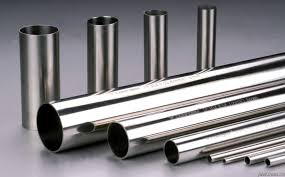Generally, in terms of the surface treatment for
stainless steel pipes, manufacturers have three methods, blenching treatment, polishing treatment and coloring treatment.
However, it’s unavoidable to have some problems during the surface treatment, mainly are the following problems.
1. Defects of welding crevice. When the defects are serious, usually can apply the mechanical polishing process to deal it, however, this method may cause grinding marks and result in the uneven surface and influence the appearance of pipes.
2. Uneven surface. If only give pickling passivation to welding crevice, it will also cause the uneven surface and affect the appearance of pipes.
3. Uneven polishing. For the lager object, carrying pickling passivation after manual polishing is also difficult to reach the even surface and the processing is time and cost consuming.
4. Limited capacity of acid washing. The pickling passivation is not a panacea for all kind of surface treatment. It’s also hard to remove the black scale cinder on the stainless steel pipe which is produced by plasma cutting and flame cutting.
5. Human factor. Human factors may lead to serious scratches during lifting, transporting and processing and it’s unavoidable to have bumping, dragging and hammering. All these factors will make the surface treatment more difficult and also the main reason for rust after treatment.
6. Equipment factors. Bending and rolling the profile also may cause scratches and the main reason for rust after treatment.
7. Other factors. The raw material of stainless steel pipe may have scratches during purchasing, storing and transporting which is also the reason to cause rust.


